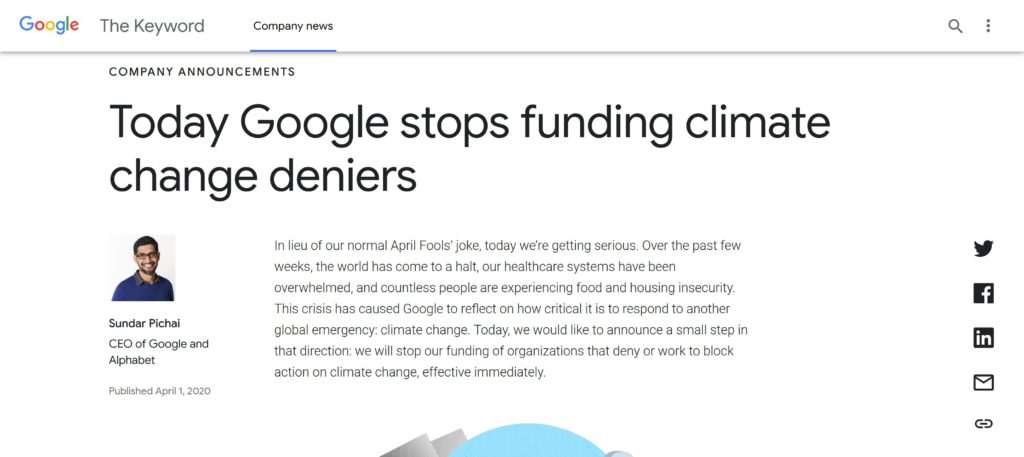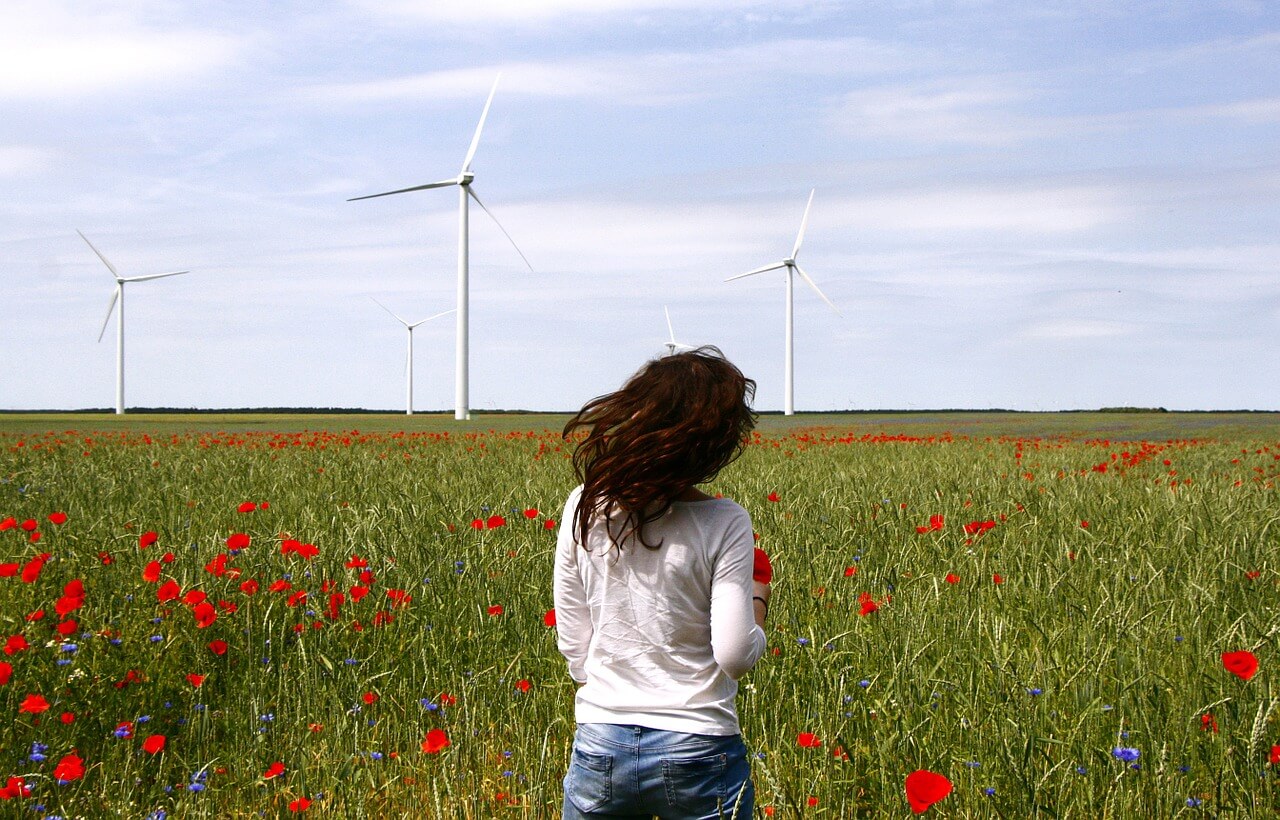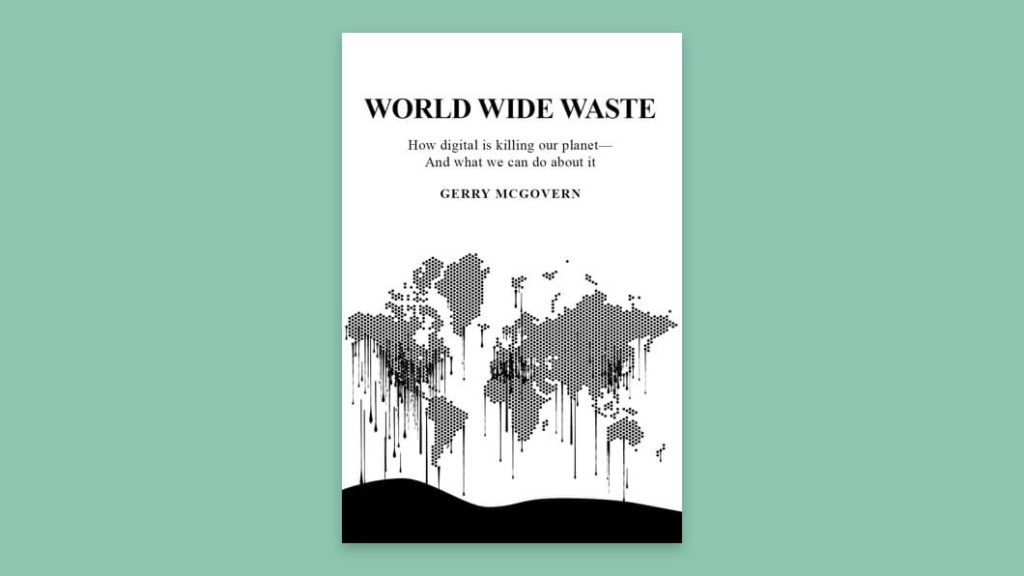|
Cleaning up the world wide waste
|
As we enjoy the sounds and smell of spring in the air, many of us probably have time at home to actually do a spring clean this year. The question arises – does the internet also need a spring clean? The author of this month’s book, Gerry McGovern, certainly thinks so.
As always, please do keep in touch, send us your feedback and tell us about anything that you would like to suggest for future editions.
Stay well.
– Tom Greenwood
|
|
|
Top picks from the green web
|

Imagine a greener Google...
|
April fools’ day has passed, so I won’t try to fool you with this one, but I still think it is worthy of discussion.
Extinction Rebellion created this spoof Google website announcing Google’s apology for it’s involvement with climate change denial think tanks and the fossil fuel industry.
It is brilliantly executed and really did make me think for a minute that Google had decided that perhaps it should not be evil after all.
What’s most interesting, is that it doesn’t make Google look bad – it makes them look good. As I read the page, I had a huge amount of admiration for Sundar Pichai and Google for being so humble, having the courage to admit mistakes and presenting a solid plan to put things right.
The only problem is that it isn’t true. It just shows the huge missed opportunity for tech companies to earn trust and loyalty by being honest and taking a stand.
|
|
|
Do websites hold the key to green government?
|
Lars Larsson, the CEO of caching software company Varnish, has written this piece for Open Access Government, making the case that while governments are often criticised for the environmental impact of their paper-based direct mail and ministerial cars, there is generally little or no attention paid to the impact of their huge digital estates.
As the CEO of a business that sells caching software, Larsson is naturally pretty biased towards caching being the silver bullet to green the internet. There is obviously a lot more to it than just caching, but there is truth in the overall message that governments have a huge opportunity to reduce the energy used by their digital services and in doing so, send a positive signal to the wider digital sector that green is good.
|
|

Green energy powering work from home
|
We are proud to announce that we have achieved our goal of 100% of employees using renewable energy tariffs at home. It’s taken us 3 years to achieve and is perfect timing now that we are doing all of our work from home.
Perhaps the Coronavirus restrictions could be a catalyst for more people switching to renewable energy tariffs at home, which would accelerate the shift to an entirely renewable grid.
On the same topic, The Guardian reports that due to a 10% reduction in energy demand and a growing supply of renewable power, UK households could even be paid for daytime green electricity use. Sounds like a good problem to have!
|
|
|
|
|
The web is an ocean full of crap
|
Gerry McGovern
|
|

World Wide Waste by Gerry McGovern
|
Gerry McGovern has just released his new book, a passionate call to action about the huge amount of waste being created by our digital lifestyles. McGovern works hard to communicate the physical reality of our virtual lives, and makes the case that 90% of what we store, send, download, publish and process is unnecessary waste.
He has used the writing of the book itself to explore this concept, assessing the impact of a digital eBook versus a printed book, and designing the book itself to be super efficient. That lo-fi cover design is no accident! Gerry states that despite being 20% longer than his book Top Tasks, the eBook file is 94% smaller.
The core message is clear – digital is physical, and it’s about time we started cleaning up our crap.
|
|
|
|
|
Quick links from our team & friends
|
|
|
|